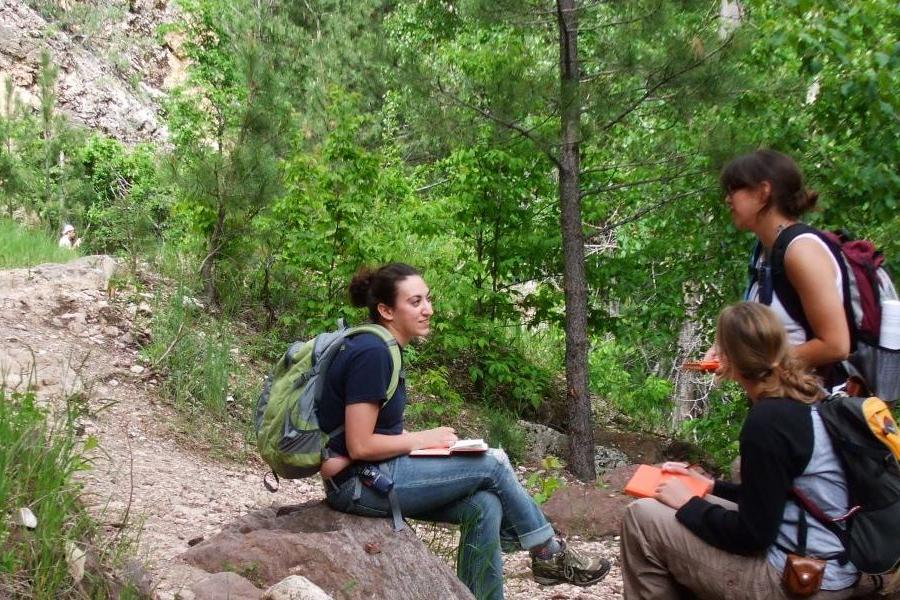Environmental Science and Design Research Institute
Meet the 2021-2022 Biodesign Challenge Team Representing 91œ„Ω∂ ”∆µ at the BDC Summit
Five elite KSU students, from diverse backgrounds, are competing at the Biodesign Challenge international summit with their cutting-edge product.

Geography Professor Selected for AGU’s National Diversity, Equity and Inclusion Leadership Academy
Scott Sheridan, Ph.D., professor and chair of the Department of Geography, in the College of Arts and Sciences at 91œ„Ω∂ ”∆µ University, was recently selected to become an inaugural American Geophysical Union (AGU) LANDInG (Leadership Academy and Network for Diversity and Inclusion in the Geosciences) Academy Fellow.

Climate Scientist Publishes Trends in ‘Weather Whiplash’ Events
Many wonder if climate change is the reason we‚Äôve had 'weather whiplash' or day-to-day dramatic changes from hot to cold or cold to hot. As a climate scientist, Cameron Lee, assistant professor in the Department of Geography in the College of Arts and Sciences at 91œ„Ω∂ ”∆µ, gets asked this question a lot. Looking beyond just the average temperatures and statistical means, he decided to take a more analytical look at weather whiplash and add to a growing body of climate change literature examining temperature variability trends.
Geography Researchers to Contribute to Actionable Science for Decision Makers
Timothy Assal, Ph.D., assistant professor in the Department of Geography, was awarded a grant as a co-principal investigator on a multi-institutional project, ‚ÄúVulnerability of lower-ecotone aspen forests to altered fire regimes and climate dynamics in the northern Great Basin‚Äù (a three-year $299,842 total award with $89,600 going to 91œ„Ω∂ ”∆µ), which is funded by the . This collaboration includes the United States Geological Survey in Boise, Idaho, Utah State University, and the United States Bureau of Land Management.

91œ„Ω∂ ”∆µ Announces Winners Of The Faculty Outstanding Research And Scholarship Award
91œ„Ω∂ ”∆µ's Jonathan Maletic, Ph.D., in the Department of Computer Science and Tara Smith, Ph.D., in the College of Public Health are the winners of the 2021 Faculty Outstanding Research and Scholarship Awards (ORSAs). The ORSAs recognize the hard work and dedication of faculty members who have been with 91œ„Ω∂ ”∆µ for more than 10 years. Read more about the winners and how they display the highest levels of scholarship.

Researchers Take a Closer Look at Nitrogen in the Chihuahuan Desert, New Mexico
Researchers from 91œ„Ω∂ ”∆µ University and the University of New Mexico determined how nitrogen-fixing plants and soil microbes contribute to the overall nitrogen availability in the Chihuahuan desert in New Mexico.

Professor Receives NASA New Investigator Award
He Yin, Ph.D., assistant professor in 91œ„Ω∂ ”∆µ University‚Äôs Department of Geography, recently received NASA‚Äôs New (Early Career) Investigator Award in Earth Science. Yin will lead evaluation and research of the devastating effects that the Syrian civil war has had on croplands throughout the eastern Mediterranean region.
Growing Cities are Growing Green: The Progression of Living Architecture

Lighting a fire(fly): Biological Sciences Researcher Helps Teachers Get Messy with Data
